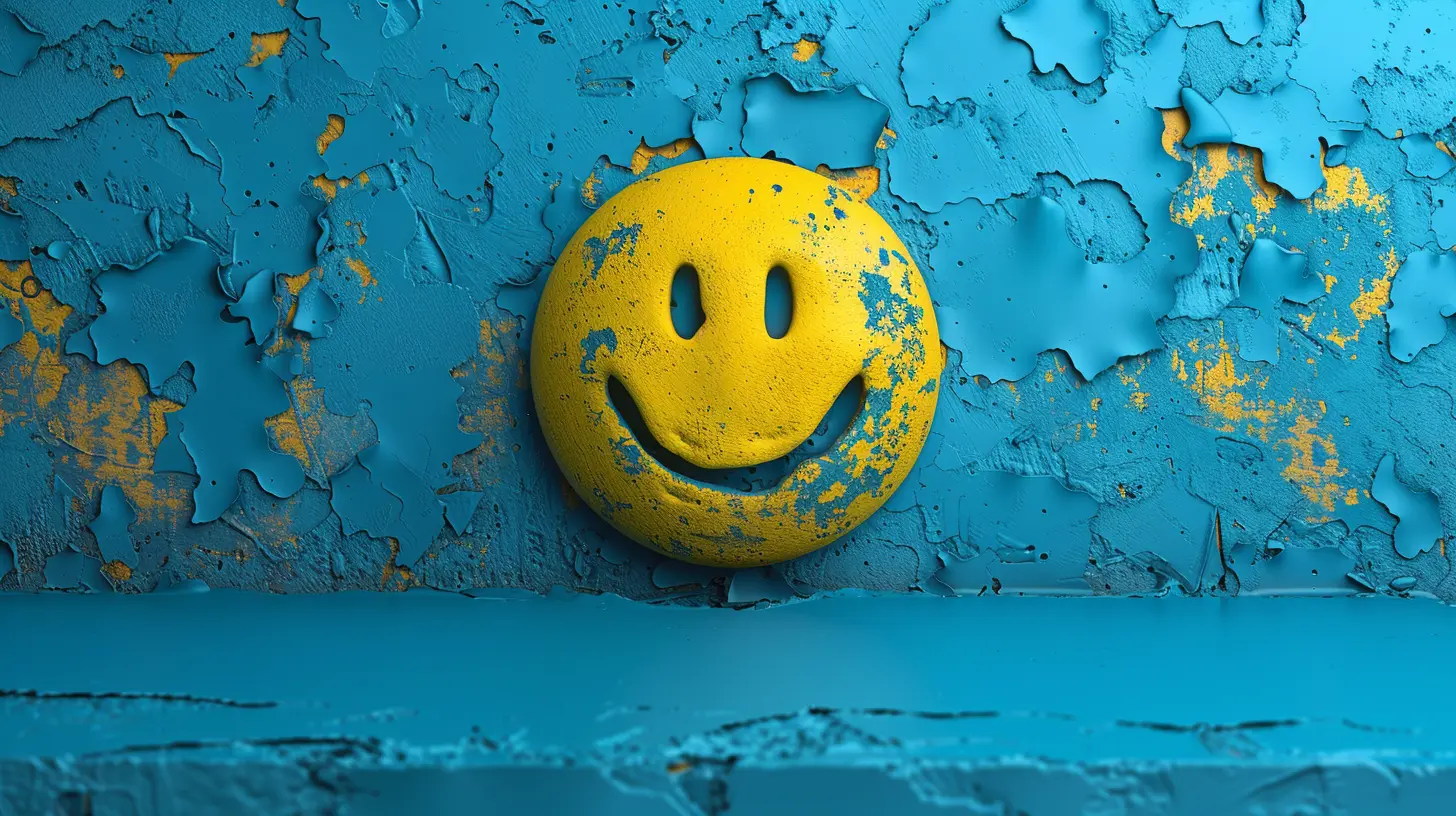How to Build Emotional Endurance in the Face of Failure
9 August 2025
Let’s be honest — failure sucks. It stings, bruises your ego, and can knock the wind out of your confidence quicker than you'd expect. But here’s the thing: failing is inevitable. Whether you're chasing a dream job, launching a business, or working on your personal growth, failure is going to pop up like an uninvited guest. The real question isn’t how to avoid failure — it’s how to keep going when it hits you square in the face.
That’s where emotional endurance comes into play. Think of it as your psychological stamina — the inner strength that helps you bounce back, try again, and push through the messy middle. So how do you build it?
Let’s dive deep and talk about how to toughen up emotionally without becoming numb or robotic. We’re going to keep it real, practical, and yes — sometimes painfully honest.

What Is Emotional Endurance Anyway?
Emotional endurance is your ability to keep functioning — emotionally, mentally, and behaviorally — when life throws you curveballs. It's what keeps you from melting down, giving up, or self-sabotaging when things fall apart. Think of it like emotional "core strength." Just as athletes train their bodies, we’ve got to train our minds and hearts to handle stress, rejection, and disappointment.It’s not about being heartless or ignoring your feelings. It’s about managing them so they don’t manage you.

Why We Struggle to Cope With Failure
Before we jump into the how-to part, let’s talk about why failure hits so hard.- Our ego is fragile: We tie our self-worth to our achievements. So when we fail, it feels like we're not good enough.
- Our inner critic is loud: That nagging voice in your head that says "You're a loser" or "See, I told you this would happen."
- Fear of judgment: We worry about what others will think. (Spoiler: most people are too busy with their own lives to care.)
- Lack of coping tools: Few of us were taught how to deal with emotional pain in healthy ways.
Sound familiar? If so, you're not broken — you're human.

1. Accept That Failure Is Part of Success
This sounds cliché, I know. But hear me out.Every successful person — and I mean every single one — has failed. Oprah was fired. Steve Jobs got booted from Apple. J.K. Rowling was rejected by a dozen publishers. The difference? They didn’t let failure define them.
So why do we take failure so personally? Because we assume success is linear — you set a goal, work hard, and get the reward. But in reality, it’s more like a tangled web of setbacks, pivots, and small wins.
👉 Reframe failure as feedback.
It’s not the end of the road — it’s a detour sign pointing you toward a smarter route. When you adopt this mindset, failure stops being a stop sign and becomes a guidepost.

2. Get Comfortable Being Uncomfortable
Let’s cut to the chase: growth is uncomfortable. It stretches you. It challenges your core beliefs. Like going to the gym, it’s going to hurt at first — but over time, you build resilience.Emotional endurance grows when you sit with discomfort instead of running from it. Whether it's embarrassment, guilt, or disappointment, allow yourself to feel the feelings. Don’t numb them with distractions or bury them under toxic positivity.
Ask yourself:
- What am I really feeling right now?
- What is this moment trying to teach me?
- Can I sit with this discomfort without judgment?
The more you practice this, the less afraid you become of emotional pain — and that’s powerful.
3. Talk to Yourself Like You Would a Friend
When you fail, what's the first thing your inner voice says?"I can't believe you messed that up again."
"You're such a failure."
"Why even bother anymore?"
Now imagine if your best friend came to you with the same problem. Would you talk to them that way?
Of course not.
You’d probably say, “Hey, this sucks, but you did your best. One misstep doesn’t define you.”
👉 That’s the kind of self-talk you need to cultivate.
It’s called self-compassion — and it’s backed by science. Research shows that people who practice self-compassion bounce back from failure faster and are more motivated to try again.
So ditch the shame spiral. Replace it with grace.
4. Reflect, Don’t Ruminate
There’s a massive difference between reflection and rumination.- Reflection helps you analyze what went wrong so you can improve.
- Rumination keeps you stuck, replaying the failure on a loop like a bad movie you can’t turn off.
If you catch yourself spiraling, pause and pivot. Jot down some questions like:
- What can I learn from this?
- What worked, and what didn’t?
- What would I do differently next time?
Use failure as a lens, not a label.
5. Build a Support System That Gets It
You don’t have to do this alone — and you shouldn’t.Emotional endurance isn't just individual grit; it’s also about leaning on relationships that recharge you. People who remind you of your worth even when you’re down. People who don’t just offer advice — they offer presence.
Surround yourself with:
- Friends who listen without judgment
- Coaches or mentors who’ve been there
- Therapists who help you process the deep stuff
Let them help you carry the emotional load. Vulnerability is not weakness — it’s the gateway to connection.
6. Focus on What You Can Control
Failure makes us feel helpless. But the truth is, there's always something you can control — even if it’s just how you respond.You can’t always control the outcome, but you can control:
- Your effort
- Your habits
- Your mindset
- Your response to adversity
Zoom in on small, daily actions that build momentum. Maybe it’s sending one more job application, practicing your pitch, or journaling your thoughts.
These aren’t just tasks — they’re emotional reps. Every time you show up despite the pain, you're training your endurance.
7. Create a “Failure File”
Sounds weird, right? But stay with me.A "failure file" is a record of all the times you’ve failed — and kept going anyway. It could include:
- Rejection emails
- Messed-up launches
- Awkward interviews
- Missed goals
But here’s the twist: next to each failure, write what you learned, how you bounced back, and what came after.
This acts like emotional receipts — proof that you can survive hard things. When the next failure hits (and it will), pull out that file and remind yourself: “I’ve been here before. I’ve overcome worse.”
8. Redefine What Success Means to You
Here’s a radical idea: what if success isn’t just about achievement, but about effort, growth, and showing up authentically?Maybe success isn’t a certain salary, title, or milestone. Maybe it’s trying again after hearing “no.” Maybe it’s being kind when you’re frustrated. Maybe it’s being brave enough to start over.
When you stop letting society’s version of success dictate your self-worth, failure loses a lot of its power.
9. Take Breaks — Not Just Hustle
Pushing through nonstop isn’t emotional endurance, it’s burnout in disguise.Rest isn't lazy — it's necessary. Rest gives your emotions time to regulate, your brain time to reset, and your perspective time to widen.
If you’re feeling tapped out, do something simple:
- Go for a walk
- Nap
- Unplug for a few hours
- Read something fun
You’re not a robot. You’re a complex human being with emotions, limits, and needs. Respect that.
10. Celebrate the Effort, Not Just the Win
You got up. You tried. You faced your fear head-on. That matters.Celebrate the courage it took to act — even if it didn’t work out the first (or fifth) time. Every attempt builds psychological strength, like layers of armor forged in the fire of experience.
Give yourself credit for showing up. That’s emotional endurance in action.
Final Thoughts: Failure Doesn't Define You
Building emotional endurance in the face of failure isn’t about being unaffected by pain — it’s about developing the strength to keep moving through it. It’s the quiet grit that whispers, “Try again,” even when everything inside you wants to give up.So next time failure knocks you down, don’t see it as the end. See it as training. You’re not broken. You’re building.
And honestly? That’s more powerful than any external success.
Keep going. Your emotional muscles are stronger than you think.
all images in this post were generated using AI tools
Category:
Emotional Well BeingAuthor:

Eliana Burton
Discussion
rate this article
1 comments
Jenna McAndrews
This article offers intriguing insights into resilience! I'm curious about the practical strategies for developing emotional endurance. It would be fascinating to explore how different personalities might respond to failure and what unique approaches could be most effective.
September 3, 2025 at 2:33 AM

Eliana Burton
Thank you for your feedback! I appreciate your interest in practical strategies and personality responses. I'll definitely consider exploring those aspects in future discussions on emotional endurance.


